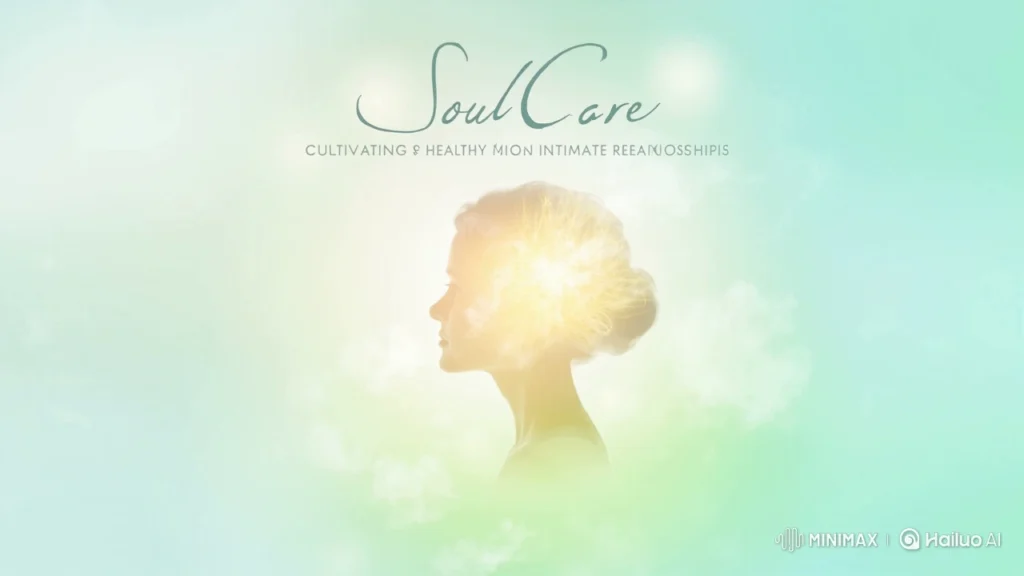In the journey of life, the pursuit of intimate relationships is a universal human experience. However, before we can truly connect with others on a deep level, it is essential to engage in SoulCare – a process of understanding ourselves, building a solid psychological foundation, and preparing ourselves for the beautiful yet complex world of intimacy. This isn’t just about surface – level self – improvement; it’s a holistic approach that delves into the very core of our being, equipping us with the tools and insights needed to navigate the intricate dynamics of love and connection.

Understanding the Self: The First Step towards Intimacy
Self – awareness is the cornerstone of SoulCare. It involves delving deep into our thoughts, emotions, values, and past experiences to gain a clear understanding of who we are. By understanding ourselves, we can better communicate our needs, boundaries, and desires in relationships. Self – awareness is like holding up a mirror to our souls, allowing us to see not only our strengths but also the areas where we can grow and evolve.
Exploring Our Values
Our values are the guiding principles that shape our lives. They determine what we consider important, meaningful, and desirable. When we are clear about our values, we can attract partners who share similar beliefs and create relationships that are based on mutual respect and understanding. Take some time to reflect on what truly matters to you. Is it honesty, loyalty, adventure, or something else? Write down your top values and consider how they influence your decisions and actions.
For instance, if freedom is one of your core values, you may find yourself drawn to partners who support your independence and encourage you to pursue your passions. On the other hand, if family is of utmost importance, you’ll likely seek someone who values close – knit relationships and understands the significance of family bonds. To further clarify your values, you can try the “values card sort” exercise. Gather a set of cards with various values written on them and sort them into categories of importance. This hands – on activity can provide deeper insights into what truly drives you.
Reflecting on Past Experiences
Our past experiences, especially those in relationships, have a profound impact on our current attitudes and behaviors. By reflecting on these experiences, we can identify patterns that may be holding us back from forming healthy connections. For example, if you have had a history of being betrayed in relationships, you may find yourself being overly cautious or distrustful in new partnerships. Recognizing this pattern allows you to take steps to address your trust issues and open yourself up to new possibilities.
Therapy can be an invaluable resource in this process. A trained therapist can help you explore the root causes of these patterns and guide you towards healing. Additionally, keeping a relationship journal can be beneficial. Write down your thoughts, feelings, and reactions during different relationship experiences. Over time, you may notice recurring themes that can shed light on your relationship patterns. For example, you might realize that you tend to attract partners who are emotionally unavailable because of unresolved childhood issues related to attachment.
Building a Healthy Psychological Foundation

A strong psychological foundation is essential for thriving in intimate relationships. It enables us to handle the challenges and stresses that inevitably arise and maintain a positive and healthy connection with our partners. This foundation acts as a buffer, protecting us from the negative impacts of relationship conflicts and external pressures.
Developing Emotional Intelligence
Emotional intelligence refers to the ability to recognize, understand, manage, and express our emotions effectively. It also involves being able to empathize with the emotions of others. In relationships, emotional intelligence allows us to communicate our feelings in a healthy way, resolve conflicts constructively, and build deeper emotional connections. To develop emotional intelligence, practice mindfulness – paying attention to your emotions as they arise without judgment. Learn to identify the triggers for your emotions and develop healthy coping mechanisms. Additionally, make an effort to understand the perspectives and emotions of your partner by actively listening and showing empathy.
One effective way to enhance emotional intelligence is through role – playing. With a friend or partner, simulate common relationship scenarios such as having a disagreement or sharing good news. Practice responding in ways that demonstrate emotional intelligence, such as validating the other person’s feelings before expressing your own. Another useful technique is to practice active listening in your daily interactions. When someone is speaking to you, focus on their words, body language, and tone of voice. Try to understand their underlying emotions and respond in a way that shows you care.
Practicing Self – Compassion
Self – compassion is the act of treating ourselves with kindness, understanding, and acceptance, especially in times of difficulty or failure. In the context of relationships, self – compassion helps us to avoid self – criticism and blame when things don’t go as planned. Instead of beating ourselves up over mistakes, we can approach ourselves with the same compassion and understanding that we would offer to a dear friend. This allows us to learn from our experiences and grow stronger in our relationships. Practice self – compassion by using positive self – talk, acknowledging your efforts and progress, and forgiving yourself for your imperfections.
The self – compassion break exercise is a powerful tool. When you’re feeling down on yourself, pause and repeat the following phrases: “This is a moment of suffering,” “Suffering is a part of life,” “May I be kind to myself,” and “May I give myself the compassion I need.” You can also create a self – compassion box filled with items that bring you comfort, such as photos of loved ones, your favorite quotes, or small treats. Whenever you’re feeling low, open the box and engage with the items inside to remind yourself of your worth and the importance of self – care.

Preparing for Intimacy: Letting Go of Baggage and Embracing Vulnerability
Before we can fully embrace intimacy, we need to let go of the emotional baggage that may be weighing us down and learn to be vulnerable with our partners. This process is like shedding old skin, allowing us to step into new relationships with a fresh perspective and an open heart.
Releasing Past Hurts
Past hurts, such as heartbreak, betrayal, or abuse, can create emotional barriers that prevent us from opening up to new relationships. To release these past hurts, it is important to process our emotions and heal from the wounds. This may involve seeking the support of a therapist, journaling about our experiences, or practicing forgiveness. By letting go of the past, we can free ourselves from the emotional burden and make space for new, healthy relationships to enter our lives.
Forgiveness meditation is a great way to start the healing process. Sit quietly, close your eyes, and visualize the person who hurt you. Then, repeat affirmations of forgiveness, such as “I forgive you for what you did,” “I release the pain you caused,” and “I wish you peace.” Another approach is to write a letter to the person who hurt you (you don’t have to send it). In the letter, express all your emotions, from anger and sadness to the desire for healing. This can be a cathartic way to release pent – up feelings.
Embracing Vulnerability

Vulnerability is the willingness to expose our true selves, including our fears, insecurities, and weaknesses, to others. In relationships, vulnerability is essential for building deep emotional connections. When we are vulnerable with our partners, we show them that we trust and value them enough to be open and honest. However, vulnerability can be scary, as it exposes us to the risk of rejection or hurt. To overcome this fear, start by taking small steps towards vulnerability. Share your thoughts and feelings with your partner gradually, and pay attention to their response. If they respond with kindness and understanding, it will give you the courage to be more vulnerable in the future.
You can start with small, everyday vulnerabilities, like admitting that you’re feeling stressed about work or sharing a childhood embarrassment. As you become more comfortable, move on to deeper topics, such as your long – term fears or insecurities about relationships. Remember, vulnerability is a two – way street. Encourage your partner to be vulnerable with you as well. By creating a safe space for open and honest communication, you can build a stronger, more intimate relationship.
In conclusion, SoulCare is a vital process that can help us understand ourselves, build a healthy psychological foundation, and prepare ourselves for intimate relationships. By engaging in self – exploration, developing emotional intelligence, practicing self – compassion, releasing past hurts, and embracing vulnerability, we can create the space for meaningful and fulfilling connections with others. Remember, the journey towards healthy intimacy starts with taking care of our own souls. This ongoing practice of self – care and growth will not only enhance our relationships but also bring us greater self – fulfillment and happiness in all aspects of life.
